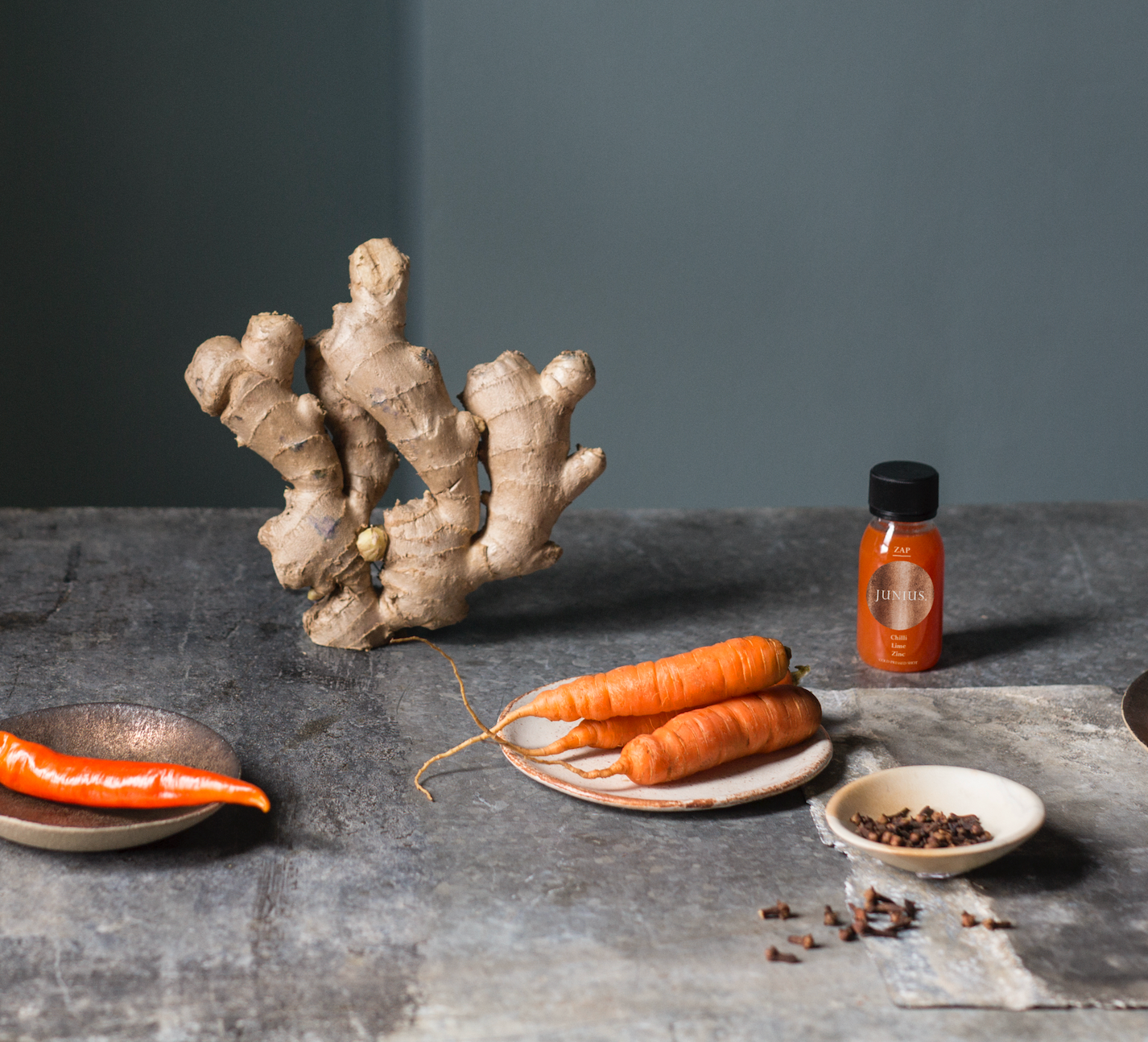As winter approaches...
it’s a good idea to start thinking about supporting your immune system through the colder months. Obviously immune health has been a big focus since the start of the pandemic, which is of course important, but we can also strengthen our defences to keep the common cold and winter bugs at bay.
Let’s start with a look at how your amazing immune system works.
Your immune system can be thought of as the army that defends you from a variety of invaders, such as viruses, bacteria, parasites, fungi, environmental chemicals and free radicals and ‘foreign’ proteins such as undigested food particles. It’s an extremely intelligent and highly complex multi-layered defence mechanism that we are born with and it’s working 24 hours a day to protect you, constantly surveilling your system and checking for invaders, ready to attack.
The immune system’s outer defences consist of millions of free-roaming cells that circulate around the bloodstream on the lookout for invaders. If the cells find an invading organism on their rounds, they bring it back to the lymph glands where other immune cells are waiting in the wings to fight off invaders. These fighting immune cells start to multiply and release special molecules known as antibodies.
Antibodies attach themselves onto the invading bugs, which can stop some of the invaders completely and if not, the immune system sends in additional back up fighter cells, known as killer cells and macrophages, that go in and gobble up the antibody plus invader in one go. For the most part, no invaders make it past this point, even though we are constantly being exposed to invaders and we stay healthy and safe.
Issues arise however, when our immune system doesn’t have enough support from the necessary nutrients needed to keep it functioning at its optimal level.
Lack of nutrients and chronic stress are two key factors that can negatively impact your immune system and lower your defences. Chronic stress increases cortisol and high cortisol levels suppresses proper immune system function.
The good news is that whilst the immune system itself is complex, it doesn’t require complicated support. Getting a regular intake of some of the key nutrients to support the immune system to do its work and some key lifestyle habits can make a profound difference.
Here are some top foods for keeping your immune defences strong this winter:
THE POWER OF MUSHROOMS
Ganoderol acid is the active ingredient in reishi mushrooms. In studies it has been found to encourage the production of infection-fighting cells and improve the action of our white blood cells, which are just some of our immune system warrior cells. You can find reishi mushrooms in most big supermarkets nowadays, throw them into stir-fries, grill them or sauté them.
CAROTENOIDS & VITAMIN C
Carotenoids, such as beta-carotene, are found in orange vegetables, like carrots and science shows them to be powerful antioxidants that can protect against cardiovascular disease and eye issues and support the immune system and healthy cell growth.
Carotenoids are also rich in vitamin C which is another key nutrient for a healthy immune system. Vitamin C supports various cellular functions of the immune system and has been used in hospital ICUs to help treat COVID-19 infection. Always at the top of the list for immune support, vitamin C is a powerful antioxidant with anti-inflammatory properties that can support the body’s ability to fight infection. Vitamin C has been shown to shorten the duration of the common cold and can even prevent it in some conditions.
Yet another reason we love the bright and deep coloured vegetables and fruit is because they’re packed with vitamin C. Vitamin C is a water-soluble nutrient which means the body doesn’t store it and any excess is excreted from the body via the urine. So, it’s important that we keep our vitamin C levels topped up all the time.

PROTEIN
Protein is a key nutrient for a healthy immune system and is so often overlooked. Antibodies and immune system cells rely on amino acids (from protein foods) especially when it’s trying to fight viral infections. Aim for at least 1 grams of protein per kilo of your body weight per day from foods such as fish, poultry, grass-fed organic red meat, eggs, beans and lentils, nuts and seeds, tempeh and good quality clean protein powders.
We hope this has been helpful and given you some practical tips from a nutrition and functional medicine expert for supporting your immune system this winter.



